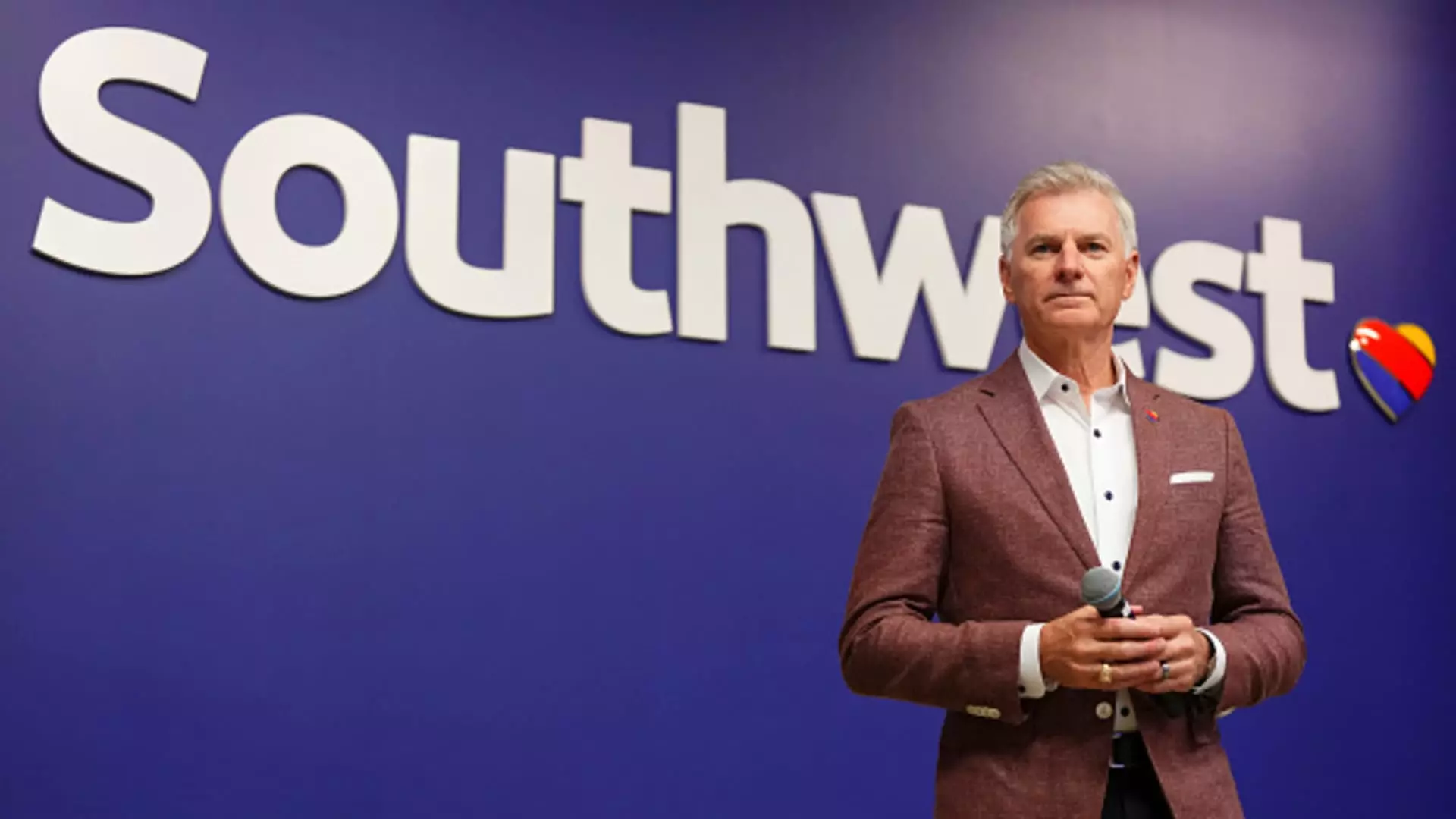In a strategic maneuver to stave off escalating tensions, Southwest Airlines has agreed to restructure its governance with the activist hedge fund Elliott Investment Management. Notably, this partnership seeks to install six new directors onto Southwest’s board, representing a significant evolution in the airline’s leadership. This arrangement also expedited the retirement of Executive Chairman Gary Kelly, highlighting a pivotal moment in the carrier’s storied history. As Southwest Airlines confronts mounting pressure for innovation in a competitive market, the implications of this deal are both profound and multifaceted.
The boardroom shakeup at Southwest is rather significant, appointing five candidates from Elliott’s slate alongside Pierre Breber, the former Chief Financial Officer of Chevron. This addition brings the board’s total number of members to 13, just shy of a majority control, yet substantial enough to enact significant change. The decision to replace Kelly, who has been at the airline’s helm for over three decades, and maintain CEO Bob Jordan’s position demonstrates a unique balance between new leadership and existing experience. This nuanced shift in governance highlights the potential for revitalizing Southwest’s strategic approach while ensuring continuity in leadership amidst shifting market dynamics.
Elliott Investment Management had clearly expressed dissatisfaction with the current executive leadership’s pace in implementing fundamental changes, particularly regarding profit-driven strategies. Under scrutiny, both Kelly and Jordan faced calls for their removal due to perceived stagnation in adapting the airline’s model to the demands of contemporary air travel. While the airline’s third-quarter profit surpassing analysts’ projections was a positive signal, the broader context reveals a concerning disparity. Southwest’s stock has underperformed, increasing by less than 1% this year, starkly contrasting with the S&P 500’s 21% rise, an indicator of growing investor concerns regarding its operational efficiency.
In the face of this increasing pressure, Southwest Airlines is making bold moves to revitalize its service offerings. The airline plans to overhaul its long-standing principles, namely its open seating policy and a single-class cabin structure, which have traditionally differentiated it from competitors like Delta Air Lines. This strategic pivot suggests a willingness to experiment with more lucrative models, potentially enhancing customer experience and driving revenue. Such initiatives are fundamental not just for operational restructuring but also for restoring investor confidence.
In addition, Southwest Airlines has begun a comprehensive route evaluation, cutting back on unprofitable flights to optimize its operational footprint. Recently, at an investor day, the airline projected ambitious revenue objectives, aiming to boost Earnings Before Interest and Taxes (EBIT) by an astonishing $4 billion by 2027. Such projections reflect an underlying commitment to re-establish market competitiveness through innovative revenue generation strategies.
The recent changes come on the heels of an expected showdown between Elliott and Southwest’s management—a potential proxy fight that may have led to greater discord had an agreement not been struck. By agreeing to a compromise, both parties aim to collaboratively enhance shareholder value while mitigating unrest among investors. Elliott has indicated its intent to call a special meeting for a vote on its nominees, though the current agreement has shifted the focus from confrontation to cooperation.
Moreover, the company has signaled its commitment to returning value to shareholders with a newly authorized $2.5 billion stock buyback program, reinforcing confidence in its future growth trajectory. As part of these broader strategies, the airline must strive to communicate effectively with stakeholders to ensure transparency and garner support for its ongoing and future endeavors.
Southwest Airlines finds itself at a critical juncture, with looming challenges and compelling opportunities on the horizon. The infusion of new directors and the strategic leadership adjustments signify a proactive approach towards addressing operational inefficiencies. As the airline navigates these transformations, the focus will be on leveraging new strategies to enhance profitability, adapt to market demands, and improve shareholder confidence. With the right mix of innovative ideas and historical insights, Southwest has the potential to reclaim its position as a formidable player in the aviation industry, though this journey will require vigilance, adaptability, and significant cultural shifts within its operational ethos.

